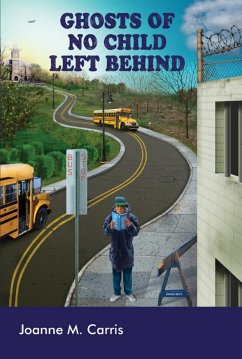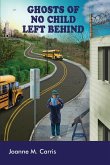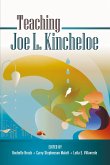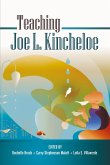Ghosts of No Child Left Behind politically situates curriculum within a historically and critically informed context, to understand the structural forces that have contributed to the creation of a population of adolescents who read below a third grade level. The book then proposes a reconceptualization of literacy curriculum within a critical discourse to facilitate self-actualizing pedagogy for non-reading adolescents - some of whom are incarcerated.
Rooted in a complex understanding of teaching, learning, and knowledge, this book presents information to policymakers, administrators, and educators that is vital to improving literacy instruction, curriculum, and policy. The information presented here can also inform the general public, especially parents, so that they may advocate for an educational infrastructure that promotes empowering literacy development for every student, including non-reading adolescents and younger struggling readers. This book is an unparalleled resource for teacher education courses focusing on literacy, critical pedagogy, policy, bilingual education, special education, and issues in urban education.
Rooted in a complex understanding of teaching, learning, and knowledge, this book presents information to policymakers, administrators, and educators that is vital to improving literacy instruction, curriculum, and policy. The information presented here can also inform the general public, especially parents, so that they may advocate for an educational infrastructure that promotes empowering literacy development for every student, including non-reading adolescents and younger struggling readers. This book is an unparalleled resource for teacher education courses focusing on literacy, critical pedagogy, policy, bilingual education, special education, and issues in urban education.
«Joanne Carris's new book, 'The Ghosts of No Child Left Behind', is a strikingly important and well-crafted guide to understanding and addressing a critical problem in American education and society - non-reading adolescents in the light of punitive public policy embodied in NCLB and its successors. How can an allegedly socially just democratic society ignore the standing of these children - many of them of color - many of them facing leaving school without graduating and suffering the consequences? Dr. Carris shines a bright light on the issue and asks us if we can tolerate a problem - not the students but our policies - that virtually guarantees poor health, a need for future public economic support, low lifetime earnings, underemployment, and, for far too many, incarceration. This is the book that helps us understand that moving to help these children is not only a moral obligation and within our power, but is also cost effective in the face of the consequences of neglect. Itshould be for every educator who cares and, just as importantly, for every thinking voter and policy maker.» (Nicholas M. Michelli, Presidential Professor The Graduate Center The City University of New York)








